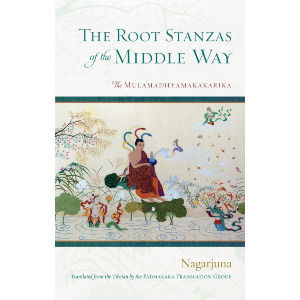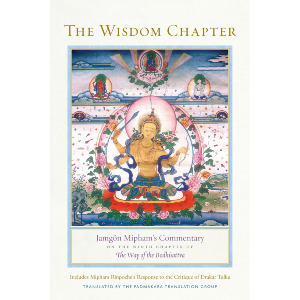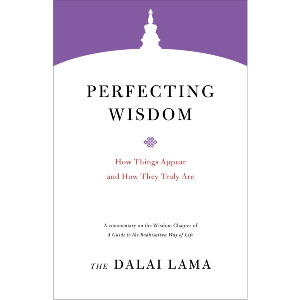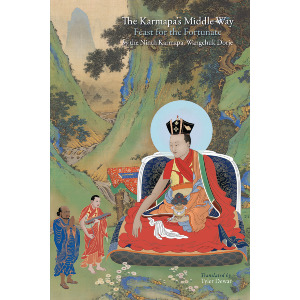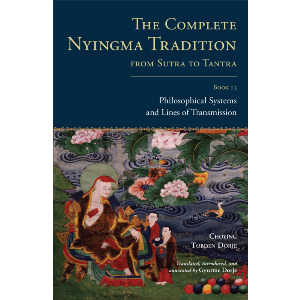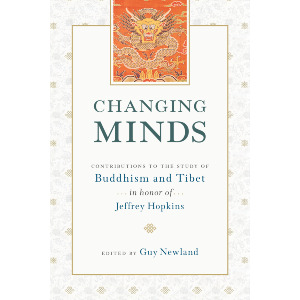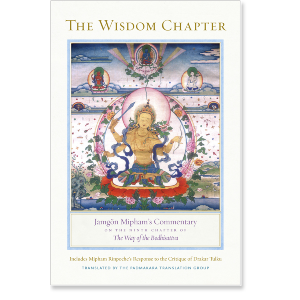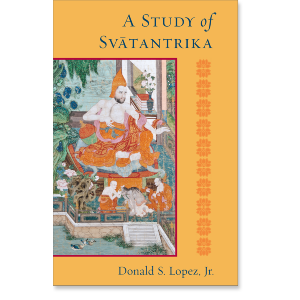| The following article is from the Summer, 1999 issue of the Snow Lion Newsletter and is for historical reference only. You can see this in context of the original newsletter here. |
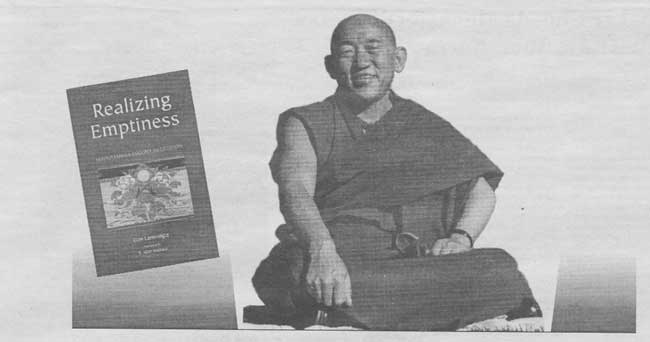
Realizing Emptiness: Madhyamaka Insight Meditation (presently published under the title How to Realize Emptiness
By Gen Lamrimpa
Translated by B. Alan Wallace
The Tibetan contemplative Gen Lamrimpa trained in Buddhist philosophy and meditation under some of the greatest masters of the twentieth century. After spending twenty years in solitary retreat, he was requested by His Holiness the Dalai Lama to take a more active role as a teacher. Subsequently, he accepted an invitation to the West, where he gave the teachings presented here in response to a request for practical instructions on Madhyamaka insight meditation aimed at realizing emptiness.
In Realizing Emptiness, Gen Lamrimpa draws on his theoretical training as well as his solitary meditative experience to show how students can gain realization of ultimate reality. He explains in a practical and down-to-earth fashion how to analyze experience to fathom how it has been misperceived and misunderstood because of our many delusions and how to use Madhyamaka reasoning to experience the way in which all things exist as dependently related events. Those who wish to apply the Madhyamaka view to meditative practice and daily life will undoubtedly find this work to be of great practical value. The book closes with two chapters on Dzogchen and its relation to Madhyamaka.
Gen Lamrimpa, Ven. Jampal Tenzin, was born in Tibet in 1934. A close disciple of H.H. the Dalai Lama, he has been living in meditative solitude in the mountains high above Dharamsala, India, since 1971. There he has gained a reputation for his deep experience of the stages of the path practices. He is also renowned as an accomplished practitioner of meditative stabilization and tummo (psychic heat) as well as other tantric meditations.
Following is an excerpt from Realizing Emptiness.
The Significance of Compassion and Insight
By meditating on emptiness one can sever the root of cyclic existence. This implies that if one meditates on emptiness with a spirit of emergence, one can eradicate the afflictive obscurations, and if this practice is motivated by a spirit of awakening, one can further eradicate the cognitive obscurations. In this way one can attain full awakening, the enlightenment of a buddha, which then provides the full capacity for utterly relieving the suffering of others and bringing them to a lasting state of well-being. Hence, the cultivation of the motivation is very important.
The initial intention is very important for any type of activity in which we may engage. For mundane activities, an ordinary intention is enough, but such a mundane motivation of simply getting the job done does not suffice for the type of activity we are discussing here. It is important to cultivate a special motivation. We must cultivate a wholesome motivation, and the most virtuous motivation we can cultivate is the one to dispel the suffering of others and to bring others to a state of well-being.
In fact, the revelation of the Buddha, including both the scriptures and insight, has compassion as its root. The teachings offered here are included in the Mahayana Dharma. In this context great compassion is indispensable. Compassion is a state of mind intent on protecting others from suffering. It is a priceless quality of awareness. If compassion fills one's own heart, one can bring others to a state of well-being and protect them from suffering. Moreover, if other people have compassion directed at oneself, this also makes them happier. One might say that compassion is the root of joy and happiness.
As an example, in your household, if you are a compassionate person, this brings happiness to the rest of the people in your family. Moreover, if all the members of a family have kind, compassionate natures, then in both hard times and good times, this quality of awareness brings about happiness for all of them. Taking a broader view, if the whole world were filled with compassionate people, there would be no question that happiness would reign.
One attains the full awakening of buddhahood exclusively by cultivating compassion and by following a path of compassion. This does not mean that compassion alone is sufficient, but rather that compassion is necessary; there is no spiritual path apart from the cultivation of compassion. Therefore, it is very important to cultivate the motivation of compassion, to yearn to free all sentient beings from suffering. With this motivation attend to the teachings on emptiness and then engage in the practice.
The Questions of Arya-Rastapala Siitra (Arya-Rastapala-pariprcchasutra) states that due to ignorance of emptiness, peace, and the unborn, sentient beings wander in the cycle of existence. The phrase emphasizes emptiness, because all phenomena, including oneself, are devoid of any inherent nature. In this context peace refers to freedom from conceptual elaboration, which entails grasping onto true existence. Finally, the unborn implies that in this sphere of freedom from conceptual elaboration, there is no arising, and since there is no arising, there is no cessation. This is the ultimate mode of all phenomena, but due to the ignorance of this reality, living beings wander in the cycle of existence. Because of our ignorance of how phenomena actually exist, we are not merely in the dark; rather, our false apprehension of how phenomena exist perpetuates our cycling in samsara.
Thus, the passage paraphrased above illustrates the relationship between compassion and wisdom. The passage shows the bodhisattva's great compassion and the Buddha's analysis of the nature of existence. Having recognized how sentient beings suffer from confusion, the bodhisattvas and the buddhas have revealed numerous avenues of understanding for gaining realization of emptiness. In such a way, if one can gain a nonconceptual realization of emptiness, one can totally eliminate not only all mental afflictions, but also the impressions upon the mind from such afflictions.
Even if one does not have such a nonconceptual realization, one may have a conceptual realization of emptiness, in which one's experience of emptiness is mixed with a generic idea of emptiness. This too is said to be very beneficial. However, if one lacks any understanding or realization of emptiness, then all of one's other virtues including compassion, generosity, moral discipline, patience, zeal, or meditative stabilization are said to be blind.

One might say that compassion is the root of joy and happiness.

In what sense are these virtues said to be blind? They do not provide a perception of one's actual goal in order to make the way clear. Just as a blind person cannot be a guide, in the same way, even if one is endowed with such virtues as great compassion or a spirit of awakening, if one lacks a realization of emptiness, one is not capable of being a guide for others or of effectively leading others from suffering. That is, one cannot totally eradicate others' suffering together with its roots and lead them to a lasting state of well-being. However, if a blind person has a guide, then he can be led to his desired destination.
Even someone with great compassion needs an understanding or realization of emptiness. The same holds true for the other five of the six perfections, namely generosity, ethical discipline, patience, zeal, and meditative stabilization. If one is lacking a realization of emptiness, these do not even get the name of perfection. They are given that name only if they are conjoined with a realization of emptiness. The Tibetan term perfection (Tib. pha rol tu phyin pa) literally means to go beyond, or transcend. Thus, the perfection of wisdom is so called because it leads one beyond the cycle of existence to the transcendent state of liberation.
What are the benefits of transcending samsara, this cycle of existence in which one is subject to birth, aging, sickness, and death? By transcending the cycle of existence you attain a state in which you are free from both birth and cessation. This is like escaping from the gravitational field of the earth in a spaceship. In short, the perfection of wisdom has extraordinary benefits to it.
Before gaining a nonconceptual realization of emptiness, if you can gain some sense of the nature of emptiness, it is like punching a hole in the bag of samsara. You may not have burst it, but you have made it leak, Firyadeva, the great Indian philosopher, declared that if one even questions the true existence of reality, this shakes the foundations of samsara. It is said that some people acquire great merit just by hearing the word emptiness, due to their sensing the great meaning of this word. Thus, listening to teachings on emptiness can have great significance, so if you are looking for a meaningful essence, you can find it.
To give an analogy, if you are steadily traveling along a wrong path, you will continue on your way wholeheartedly as long as you cannot see another road. But if you hear that there is another road, then a doubt is sown in your mind, and gradually your perseverance in following the wrong road declines. The doubt will grow to a point where you think that this may not be the right road, and by the time you get to an intersection, you will be looking for another road. As soon as you find it you can totally change direction. To bring this analogy to the subject of this teaching, the wrong road is the path of ignorance and the correct road is the wisdom of emptiness. The reality of emptiness is really the essential criterion for whether your path is the right or the wrong one. This is why it is said that even having some uncertainty will wear samsara ragged.
Even if one cultivates a spirit of awakening to a considerable extent if one lacks a realization of emptiness, one cannot cut the root of samsara. As long as one lacks that, one can never gain mastery over such things as birth, aging, sickness, and death. Therefore, the wisdom of realizing emptiness is something very precious. ä_æ
Visit us on our website:
www.snowlionpub.com




